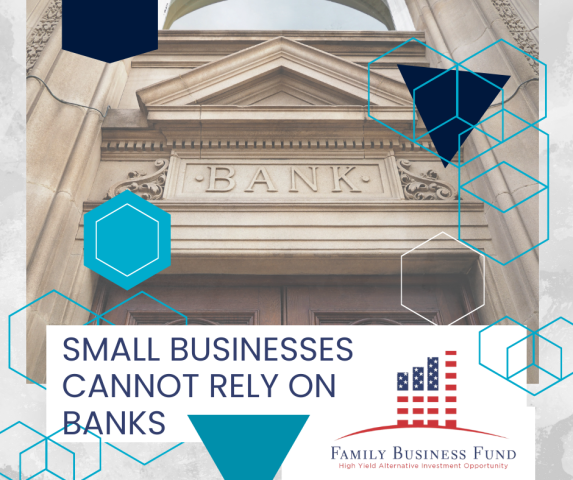Business owners have a plethora of choices when seeking financing to fund business growth depending on which stage their business is in given its lifecycle. Business owners can bootstrap, seek outside investors or pursue bank financing. Regardless of which path is ultimately pursued, the infusion of capital is critical for a business to enter new markets, hire additional employees, offer new products, or purchase necessary inventory and equipment.
Many business owners believe that bank financing is often the path of least resistance. Unfortunately, recent studies, and even our own anecdotal evidence, indicate otherwise. According to EasyKnock, “big banks still reject almost 80% of small business loan applications.”1 This article will review some of the barriers that business owners often face when pursuing bank financing.
Credit Reports
Lenders use credit reports to determine a borrower’s ability to repay debt. A credit report provides detailed information about past credit history, how much debt the business owner currently maintains, and whether bills are paid on time. A favorable credit report shows that a business and its owner(s) can meet their financial obligations on time and would therefore bode well for their chances of securing a bank loan. Sometimes, though, new businesses have no credit history or very limited operational history and are usually rejected by a big bank.

Limited Cash Flows
Cash flow measures how much cash is available to pay back a loan. A business having problems with cash flow will most likely not get a small business loan. Lenders want to see a reliable and steady income stream. But, what happens when a company is seasonal? Usually, banks will deem such a circumstance as insufficient cash flows and reject a potential borrower’s loan request.
Weak Business Plan
A company needs to plan its future by researching its market, setting revenue goals, and projecting sales growth. Lenders want to see that business owners have a plan and a strategy for how they intend to use loan proceeds. The underwriting models that banks use are built on risk assessment. A business with limited operational history, lack of collateral or inadequate business strategy will rarely pass a bank’s stringent underwriting guidelines.
1 https://www.easyknock.com/blog/small-business-loan-denial-reasons-and-what-you-can-do
There are alternatives to traditional bank loans that business owners are starting to explore. Online lenders – such as merchant cash advance companies – and crowdfunding sites are two of the more popular alternatives. Although there are tradeoffs, private credit tends to be more simplified in its application process, flexible in the use of proceeds, speedy in its approval process and provides for almost immediate cash disbursement. However, interest rates tend to be much higher. It remains to be seen if Congress will find new ways to encourage big banks to support the backbone of the American economy – small businesses. One can only hope.
Media Contact
Company Name: Family Business Fund
Contact Person: Douglas Muir
Email: Send Email
Phone: (888) 884-6442
Address:101 Plaza Real South Suite 216
City: BOCA RATON
State: FL 33432
Country: United States
Website: www.familybusinessfund.com

